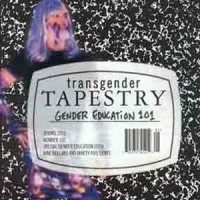HRC (2003)

©2003, 2013 by Dallas Denny
Source: Denny, Dallas. (2003, Spring). Editorial: HRC. Transgender Tapestry, 101, p. 6.
HRC
By Dallas Denny
The Human Rights Campaign recently released preliminary results from its study of attitudes of the American Public toward transgendered people. Surprisingly, the numbers were similar to those for gay men and lesbians.
The obvious conclusion to be drawn from these data is HRC’s “you will cost us votes in ENDA” argument makes no sense. Instead, HRC has declared it would be unwise to embark on a campaign to educate Americans about transgender issues.
To justify this remarkable assertion, HRC relied on a minor finding from its study: when pollsters explained to those being polled just what transgender is, the approval numbers dropped slightly. This is a far cry from gender education; it was merely a clarification of terms.
It’s easy to see why many transgender activists remain skeptical of HRC. Some see the survey as an attempt to gather data to justify the continuing exclusion of transgender-inclusive language from ENDA— an attempt which backfired when the approval ratings turned out higher than expected. I would not ordinarily be so cynical, but I’ll admit, HRC’s admonishment against doing gender education has given me pause.
We should thank HRC for doing the survey, even if the motives in undertaking it were less than pure— but we should continue to take HRC to task for continuing to exclude us, since the data show we are not a political liability. How, we should ask, is our continued exclusion not discrimination, pure and simple? How, I do ask, is it not discrimination, pure and simple?
ENDA is of course, a dead issue— but the matter of HRC’s trustworthiness on the transgender issue is very much alive. We should take special care that HRC not come to view transgender education as its purview, rather than ours.
HRC is not our enemy. Those who continue to act as if it were should behave in a more moderate fashion. But despite the addition of transgender to its mission statement, it has not yet shown that it is our friend.
